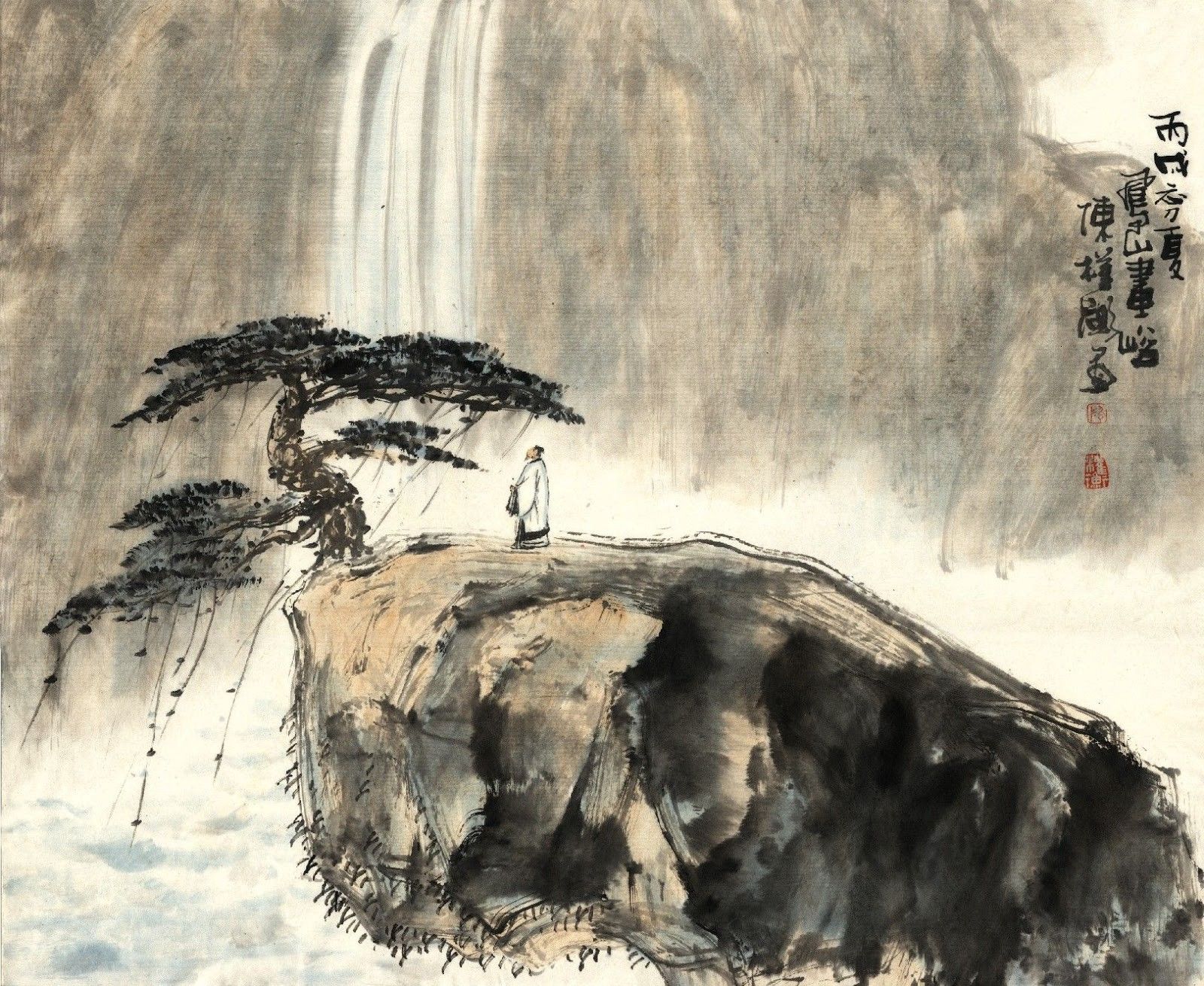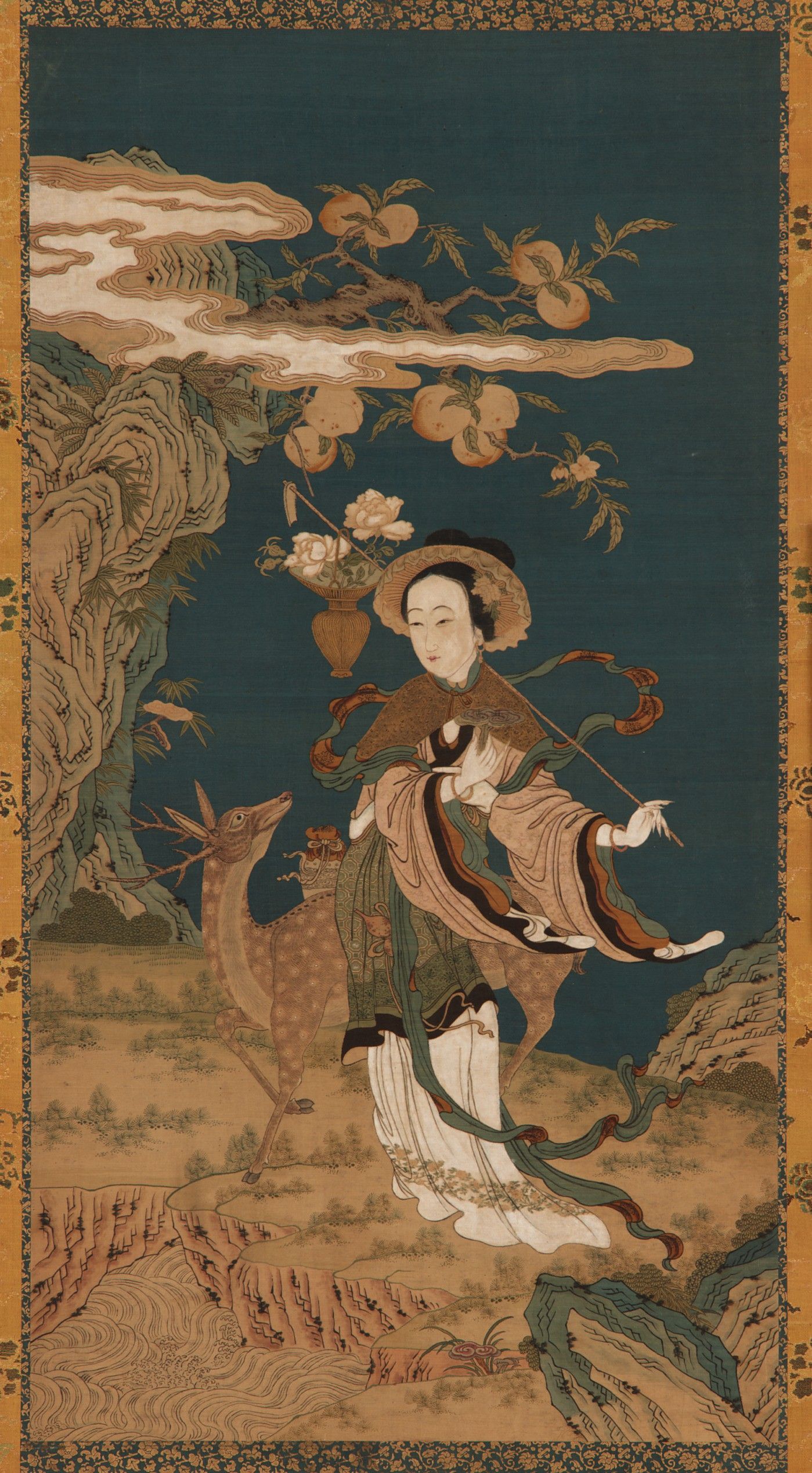The Power Of Being Useless
A lesson from the Taoist sage Zhuangzi

Zhuangzi, the ancient Taoist philosopher, is useless. He’d take that as a compliment. His friend Huizi starts by unleashing what seems to be this sick burn on him, saying,
I have a huge tree which people call the Stink Tree. The trunk is swollen and gnarled, impossible to align with any level or ruler. The branches are twisted and bent, impossible to align to any T-square or carpenter’s arc. Even if it were growing right in the road, a carpenter would not give it so much as a second glance. And your words are similarly big but useless, which is why they are rejected by everyone who hears them.
I find Chinese philosophy hilarious to read for this reason. They’re constantly dunking on each other and subtweeting the rulers of the day. In this case Huizi is saying what we all think, which is that uselessness is useless. Of course right, that’s what the word means.
Zhuangzi, however, is not so dualistic. As Laozi said, “The Way is like an empty vessel; No use could ever fill it up”. To Zhuangzi, filling oneself with ‘useful’ activity is about as helpful as filling a guitar with cement. How on earth would you hear The Way?
Hence he responds to Huizi, in an ode to slackers everywhere,
You have this big tree, and you worry that it’s useless. Why not plant it in our homeland of not-even-anything, the vast wilds of open nowhere? Then you could loaf and wander there, doing lots of nothing there at its side, and take yourself a nap, far-flung and unfettered, there beneath it. It will never be cut down by ax or saw. Nothing will harm it. Since it has nothing for which it can be used, what could entrap or afflict it?
It’s a fascinating idea, that he returns to. What are we even trying to do by all this ‘useful’ activity. What’s the use?
What the sages call us to do thus feels illogical. Kongzi says an ideal ruler should just sit down facing south. What? Laozi says the Way is the way that cannot be wayed. How now? Indeed, the human response is, oh, these guys want me do nothing. But no. That thought itself is dualistic. These ideas get translated as ‘nothing’, but someone following the Way is actually doing exactly what they’re supposed to. They simply don’t force anything.
In their job, in their family life, just walking down the road; a sage is following the Way, because inside they are still. They do not struggle. The Way flows through them, like a song through an empty guitar.
Zhuangzi quotes Kongzi (Confucius) as saying:
Good fortune comes to roost in stillness. To lack this stillness is called scurrying around even when sitting down. Allow your ears and eyes to open inward and thereby place yourself beyond your mind’s understanding consciousness.
It is our mind’s consciousness that divides acts into useful and useless. Words destroy their opposite meaning, but in the Tao they are one. As the Daodejing says, “These two come forth in unity but diverge in name. Their unity is known as an enigma.”
And yet to speak, Zhuangzi must make a choice. He, like the Buddha, chooses the least destructive option. Be useless, he says, and let this contradiction guide you to deeper understanding. But always remember:
The Way is like an empty vessel;
No use could ever fill it up.
Vast and deep!
Deep and clear!
It seems to be there.
I do not know whose child it is;
It is the image of what was before the Supreme Spirit himself!
(Daodejing, Chapter Four)

The meaning of life is: NO
What if you met God, asked them your deepest question and they just said,
No.
Nothing.
Wrong question.
People are not used to this. We want to speak to a manager. But you’re standing in front of the manager. What if the answer to the meaning of life is just NO? Forget the right answer, what if the question is wrong?
As Brook Ziporyn, the translator, summarizes:
The question Zhuangzi faces is indeed among the most fundamental human problems: How should I live my life? Which of the alternate courses should I take as my guide?
To consciously weigh alternatives, apply your understanding to making a decision about what is best, and then deliberately follow the course you have decided on — this is the fundamental structure of all purposive activity and conscious knowledge, the basis of all ethics, all philosophy, all politics, all human endeavors at improvement, and this is precisely what Zhuangzi seems to consider ridiculous and impossible.
Zhuangzi is saying that the entire way we shape our understanding is not the Way. That the Way is beyond understanding. That the best you can do is make yourself an empty vessel, and let the Way fill you up.
The analogy he uses is a tree, which people are constantly trying to make a table, or a chair, or a coffin. To make it useful, to make it into something else. Zhuangzi says no. Simply be a tree.
Carpenter Shi was traveling in Qi when he came upon the tree of the shrine at the Qu Yuan bend. It was over a hundred arm spans around, so large that thousands of oxen could shade themselves beneath it. It was surrounded by marveling sightseers, but the carpenter walked past it without a second look.
When his apprentice finally got tired of admiring it, he caught up with Carpenter Shi and said, “Since taking up my axe to follow you, Master, I have never seen a tree of such fine material as this! And yet, you don’t even deign to look twice at it or pause beneath it. Why?”
Carpenter Shi said, “Stop! Say no more! This is worthless lumber! As a ship it would soon sink, as a coffin it would soon rot, as a tool it would soon break, as a door it would leak sap, as a pillar it would bring infestation. This is a talentless, worthless tree. It is precisely because it is so useless that it has lived so long."
The spirit of the tree, hearing this insult, was pissed off and came to visit Carpenter Shi in a dream.
Back home, Carpenter Shi saw the tree in a dream. It said to him, “What do you want to compare me to, one of those cultivated trees? When their fruit is ripe they get plucked, and that is an insult.
They batter themselves with the vulgar conventions of the world — and all other creatures do the same. As for me, I’ve been working on being useless for a long time. It almost killed me, but I’ve finally managed it — and it is of great use to me! If I were useful, do you think I could have grown to be so great?
Moreover, you and I are both [members of the same class, namely], beings — is either of us in a position to classify and evaluate the other? How could a worthless man with one foot in the grave know what is or isn’t a worthless tree?
In this Zhuangzi says two things. That what we call ‘useful’ is really just the vulgar conventions of the world. Furthermore, that for us jumped-up apes to divide the world into useful and useless is presumptuous in the extreme.
As translator of the Daodejing writes, “Human beings have a place in the dao but are not particularly exalted. They are simply things among things.”
And yet we presume to both ask and define what useful is. We assign more value to a random shop called Amazon than the Amazon rainforest. In the face of this destructive usefulness, Zhuangzi is right. Be useless. We would longer survive.

The secret of eternal life is: give up
The secret to eternal life is this. Give up your life. As individuals we are deeply consumed by the fear of death, but if we stop viewing ourselves as having a distinct self at all, then we’re suddenly billions of years old and essentially eternal. Instead of a frustrated little leaf, trembling on a twig, we’re part of the grand old tree of life, with roots in bacteria and viruses and branches in animals and plants. What the Daodejing calls the myriad creatures.
What is death to such a magnificent being? Just the budding and falling of a single flower. Just a passing season, across eons. As Kongzi, quoted by Zhuangzi says:
How much more fearless is a man who takes heaven and earth as his own bodily organs and the ten thousand things as his own guts, a man who is merely lodging for the moment in his particular limbs and trunk and head, a man who regards even his own eyes and ears as mere semblances. He takes all that his consciousness knows and unifies it into a singularity, so his mind always gets through unslaughtered. His death will be just like choosing a day to climb off into the distance.
Thus we can escape slaughter like Obi-Wan avoided Darth Vader’s light saber. As Vader struck, Obi Wan just disappeared into a lump of clothes. He left himself and joined what Star Wars calls the Force, and what the ancients called the Way.
That is the power of being useless. You transcend the petty human distinction of useful/useless and become something ineffable. For lack of a better word Zhuangzi calls this useless, but beyond words, this is the most useful wisdom of all. As Bruce Lee said, be water. Be useless.
Zhuangzi. “Zhuangzi: The Essential Writings: With Selections from Traditional Commentaries (Hackett Classics).”
Laozi. The Daodejing of Laozi (Hackett Classics). Hackett Publishing Company, Inc.